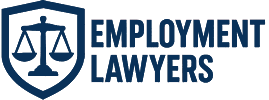Understanding Legal Consultation for Workplace Discrimination
Workplace discrimination is a serious issue that affects millions of employees every year in the United States. It comes in many forms, from racial discrimination to gender-based bias, and it can have a significant impact on an individual’s career and well-being. If you're facing discrimination at work, it's important to understand your legal rights and the role of a qualified attorney in handling your case. Legal consultation for workplace discrimination can help you navigate the complexities of discrimination laws and give you the necessary tools to fight for justice.
1. The Importance of Legal Consultation for Workplace Discrimination
When you're facing workplace discrimination, having a trusted legal advisor is essential. Legal consultation is more than just offering advice – it involves a thorough examination of the situation, reviewing company policies, gathering evidence, and understanding the nuances of the law. A lawyer specializing in employment law can help you determine whether your case qualifies as discrimination under state or federal law. This initial consultation is crucial in deciding the best course of action.
2. Types of Workplace Discrimination You May Face
Discrimination in the workplace can take many forms, including but not limited to:
- Racial Discrimination: When an employee is treated unfairly due to their race or ethnic background.
- Gender Discrimination: Bias based on an employee’s gender, including unequal pay or promotions.
- Age Discrimination: Discriminating against employees based on their age, often affecting older workers.
- Disability Discrimination: When an employee is treated unfairly due to a physical or mental disability.
- Sexual Orientation and Gender Identity: Discrimination based on an individual’s sexual orientation or gender identity.
3. How a Lawyer Can Help with Workplace Discrimination Cases
Discrimination cases can be complicated, requiring detailed documentation and legal knowledge. A lawyer will help you gather evidence, file complaints with the Equal Employment Opportunity Commission (EEOC), and represent you in court if necessary. They’ll also explain how to proceed with internal company complaints or external lawsuits. Having a lawyer who specializes in employment discrimination ensures that your case is presented properly and in accordance with the law.
4. What Happens During a Legal Consultation for Workplace Discrimination?
During your legal consultation, the lawyer will ask you a series of questions about your experience. They may inquire about any incidents of discrimination, communications with your employer, and any steps you've taken so far. The goal is to gather all the necessary facts to assess whether your case has merit. Legal consultations typically involve an in-depth review of your situation and guidance on your next steps, which may include filing a formal complaint or initiating legal action.
5. Understanding Your Rights and Protections
Employees in the U.S. are protected under various federal and state laws that prohibit discrimination in the workplace. These laws include the Civil Rights Act of 1964, the Age Discrimination in Employment Act, and the Americans with Disabilities Act, among others. Understanding these rights is essential in navigating a workplace discrimination case. A qualified attorney will help you understand which laws apply to your case and ensure that your rights are fully protected throughout the process.
6. How to Find the Right Legal Professional for Your Case
Choosing the right attorney is crucial when dealing with workplace discrimination. Look for a lawyer with experience in employment law and a proven track record of handling discrimination cases. You can also seek recommendations from colleagues or use online resources to find highly rated professionals. Once you've identified potential lawyers, schedule consultations to discuss your case, ask about their experience, and evaluate whether they are the right fit for your needs.
7. Taking Action: What to Expect After a Legal Consultation
After your legal consultation, the next steps will depend on the specifics of your case. Your attorney will explain the legal process, including the potential outcomes and timelines. If you decide to move forward with a claim, the lawyer will assist you in filing complaints with the EEOC or appropriate state agencies. They will also advise you on how to document further incidents of discrimination and protect yourself from retaliation.
8. Conclusion
Workplace discrimination is a serious issue, but you don’t have to face it alone. Seeking legal consultation for workplace discrimination can help you understand your rights, assess your case, and navigate the legal system to get the justice you deserve. If you believe you are the victim of workplace discrimination, reach out to a trusted employment lawyer who can help guide you through the process and ensure that your case is handled effectively.
For more information about legal consultations and to get expert advice on your case, visit Central Texas Employment Lawyers, your trusted source for workplace discrimination legal services.



